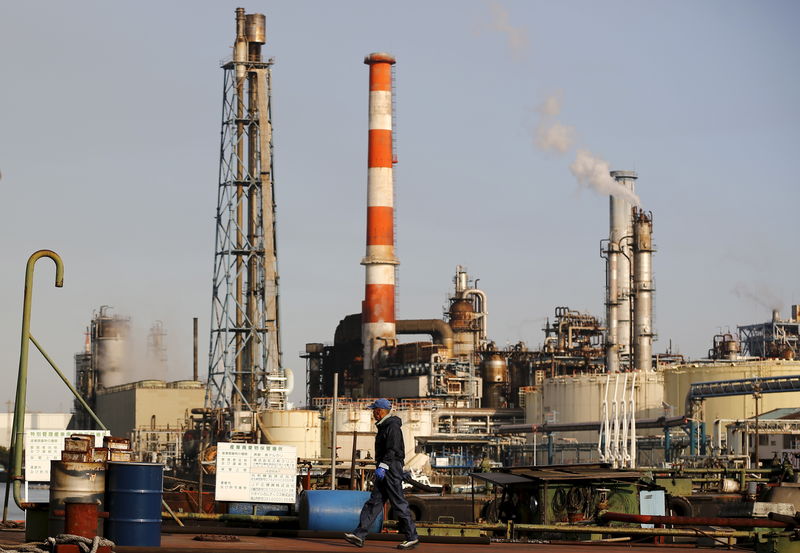By Ambar Warrick
Investing.com-- Sentiment among major Japanese manufacturers unexpectedly worsened in the third quarter, a survey by the Bank of Japan showed on Monday, as rising material costs and a worsening economic outlook weighed.
The BoJ’s Tankan Large Manufacturers Index, which is based on a quarterly poll conducted by the bank, fell to 8 in the quarter to Sept. 30 from 9 in the prior quarter. Analysts expected a reading of 11.
The reading also puts manufacturing sentiment at its weakest level since March 2021, when the country was grappling with fresh COVID-19 outbreaks. An index of industry outlook also ducked expectations.
Sentiment among commodity-importing industries such as petroleum, lumber, and iron worsened the most, while pessimism in other sectors such as automobile makers and shipbuilders persisted.
The reading comes as most major manufacturers in the country grapple with mounting costs related to commodity imports. Volatility in global markets and a severely weakened yen are the two biggest drivers of this trend.
This also saw capital expenditures among big industries rise by 21.5% in the quarter, more than expectations of 18.8% and last quarter’s reading of 18.6%.
But sentiment among major non-manufacturing industries improved slightly more than expected, propped up by robust consumer spending and loose monetary conditions in the country.
The Tankan large non-manufacturers index rose to 14 in the third quarter from 13 in the prior quarter, also beating expectations for a reading of 13. Transport, rental, and communication services saw the biggest improvements in sentiment.
Data last week showed that Japanese retail sales grew more than expected in August, as did industrial production.
But an improvement in the non-manufacturing sector was too little to offset worsening sentiment in industrials, with Japan’s overall business sentiment turning negative in the quarter.
Japan’s economic outlook has worsened substantially this year, as the world’s third-largest economy continues to grapple with surging inflation and a weakening yen.
But the BoJ has maintained its accommodative monetary policy stance, stating that the economy still needs support in the aftermath of the COVID-19 pandemic and worsening global growth.
